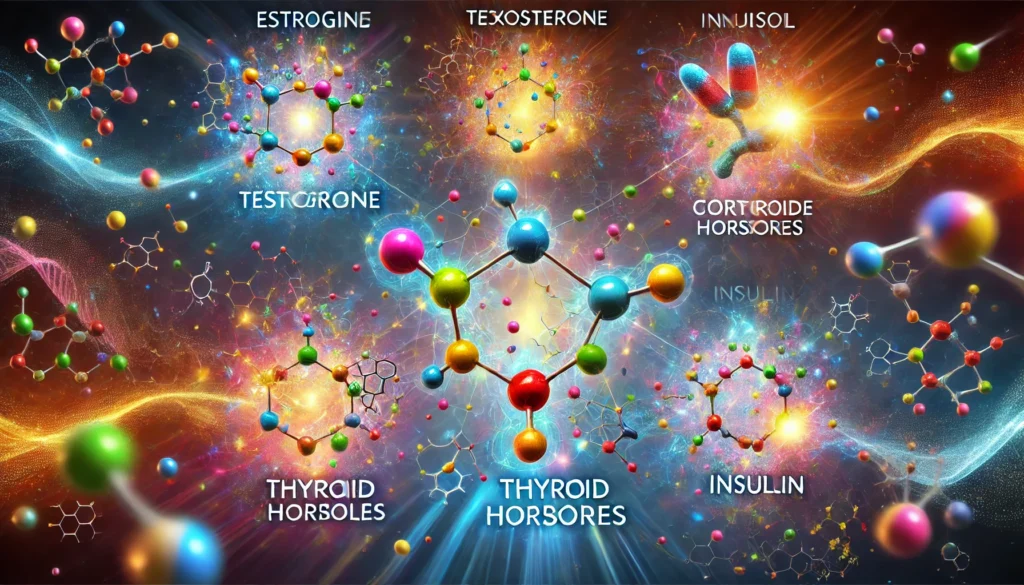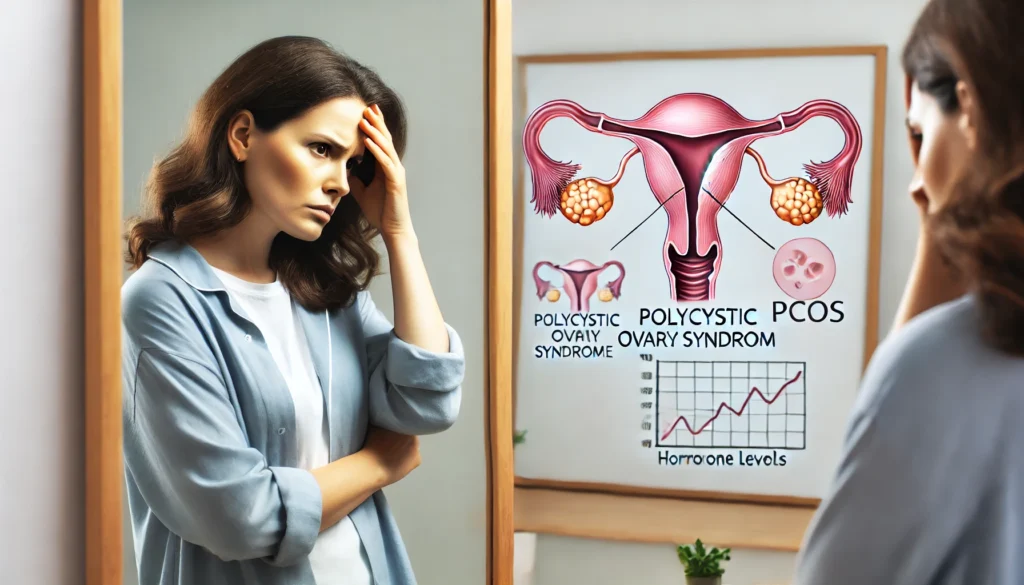Table of contents:
- Introduction
- Understanding Hormones and Their Roles
- Comprehensive List of Signs and Symptoms Causes of Hormonal Imbalances
- Diagnosing Hormonal Imbalances
- Treatment Options
- When to See a Doctor
- Conclusion
Introduction
Imagine waking up one morning feeling completely unlike yourself—unexplained weight gain, mood swings that seem to come out of nowhere, and a persistent sense that something just isn’t right. You’re not alone. Approximately 80% of women will experience hormonal imbalances at some point in their lives, yet many struggle in silence, unsure of what’s happening in their bodies.
Hormonal imbalances are more than just a minor inconvenience. They’re complex disruptions in the delicate chemical messengers that regulate nearly every bodily function. From your metabolism and mood to your sleep patterns and reproductive health, hormones play a crucial role in maintaining overall well-being.
This comprehensive guide is designed to demystify hormonal imbalances, helping you:
- Recognize the signs and symptoms
- Understand the underlying causes
- Explore effective treatment options
- Know when to seek professional help
Understanding Hormones and Their Roles
The human body is an intricate network of chemical communication, orchestrated by the endocrine system. Hormones are the messengers that travel through your bloodstream, delivering critical instructions to tissues and organs. Let’s explore some key hormones:

Major Hormones and Their Functions
| Hormone | Primary Function | Key Impact |
| Estrogen | Reproductive health | Regulates menstrual cycle, bone density, skin health |
| Testosterone | Sexual function and muscle development | Impacts libido, muscle mass, bone density |
| Cortisol | Stress response | Manages stress, metabolism, inflammation |
| Thyroid Hormones | Metabolic regulation | Controls energy, weight, body temperature |
| Insulin | Blood sugar management | Regulates glucose metabolism, energy storage |
These hormones don’t work in isolation—they interact in a complex, interconnected system. A change in one can trigger a cascade of effects throughout your body.
Comprehensive List of Signs and Symptoms

Estrogen Imbalance Symptoms
- Irregular or heavy menstrual periods
- Mood swings and depression
- Unexplained weight gain
- Decreased libido
- Hot flashes and night sweats
Testosterone Imbalance Symptoms
- Reduced muscle mass
- Low energy levels
- Decreased sexual drive
- Mood changes
- Hair loss
Comprehensive Symptom Checklist

- Menstrual Irregularities
- Missed periods
- Heavy or prolonged bleeding
- Painful periods
- Physical Changes
- Unexplained weight gain or loss
- Persistent acne
- Hair thinning or excessive hair growth
- Muscle weakness
- Dry or oily skin
- Emotional and Mental Symptoms
- Anxiety
- Depression
- Irritability
- Brain fog
- Difficulty concentrating
- Sleep and Energy Disruptions
- Insomnia
- Chronic fatigue
- Night sweats
- Reduced stamina
Causes of Hormonal Imbalances
Hormonal imbalances don’t occur in a vacuum. Multiple factors can contribute:

Primary Causes
- Age-Related Changes: Puberty, menopause, andropause
- Chronic Stress: Elevates cortisol, disrupting other hormone levels
- Dietary Factors: Processed foods, high sugar intake
- Sedentary Lifestyle: Lack of exercise impacts hormone production
- Sleep Deprivation: Disrupts natural hormone cycles

Medical Conditions
- Polycystic Ovary Syndrome (PCOS)
- Thyroid Disorders
- Diabetes
- Adrenal Disorders
Diagnosing Hormonal Imbalances
Diagnostic Tests
- Blood Tests
- Measure hormone levels
- Assess overall endocrine function
- Saliva Tests
- Evaluate hormone levels throughout the day
- Useful for tracking fluctuations
- Urine Tests
- Comprehensive hormone metabolite analysis
- Provides insights into hormone processing
- Imaging Scans
- Ultrasound
- MRI to examine endocrine glands
Treatment Options

Medical Interventions
- Hormone Replacement Therapy (HRT)
- Birth Control Pills
- Thyroid Medications
- Diabetes Management Medications
Natural Remedies

Dietary Recommendations
- Whole, unprocessed foods
- Healthy fats (avocados, nuts, olive oil)
- Anti-inflammatory diet
- Limit sugar and caffeine

Lifestyle Modifications
- Stress management (meditation, yoga)
- Regular exercise
- Consistent sleep schedule (7-8 hours)
Supportive Supplements
- Vitamin D
- Magnesium
- Zinc
- B-Complex Vitamins
Disclaimer: Always consult a healthcare professional before starting any supplement regimen.
When to See a Doctor
Seek immediate medical advice if you experience:
- Severe, persistent symptoms
- Symptoms interfering with daily life
- Sudden hormonal changes
- Fertility concerns
Conclusion
Understanding and managing hormonal imbalances is a journey of self-discovery and proactive health management. While the symptoms can be challenging, numerous effective treatments and lifestyle modifications can help restore balance.
Take Action Today: Listen to your body, track your symptoms, and don’t hesitate to seek professional guidance. Your hormonal health is a critical component of your overall well-being.
Disclaimer: This guide is for informational purposes and should not replace professional medical advice.








Your first blogger follower
Thank u a lot , This made me understand better how hormones work and how they affect me. Thank you.